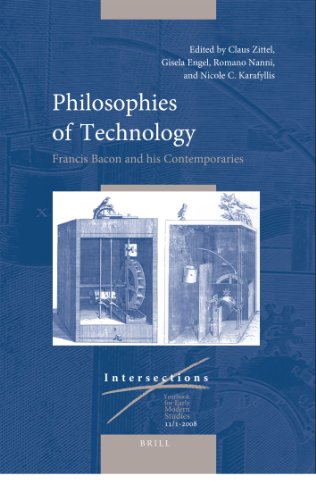

Most ebook files are in PDF format, so you can easily read them using various software such as Foxit Reader or directly on the Google Chrome browser.
Some ebook files are released by publishers in other formats such as .awz, .mobi, .epub, .fb2, etc. You may need to install specific software to read these formats on mobile/PC, such as Calibre.
Please read the tutorial at this link: https://ebookbell.com/faq
We offer FREE conversion to the popular formats you request; however, this may take some time. Therefore, right after payment, please email us, and we will try to provide the service as quickly as possible.
For some exceptional file formats or broken links (if any), please refrain from opening any disputes. Instead, email us first, and we will try to assist within a maximum of 6 hours.
EbookBell Team

4.8
94 reviews 
ISBN 10: 9004170502
ISBN 13: 9789004170506
Author: Claus Zittel
"The essays in the present volume attempt to historically reconstruct the various dependencies of philosophical and scientific knowledge of the material and technical culture of the Early Modern era and to draw systematic conclusions for the writing of Early Modern history of science. The divisive transformation of humanist scholarly culture, the Scholastic school philosophy, as well as magic in the form of a philosophy of practice is always associated with the work of Francis Bacon. All of these essays in this volume reflect the close interaction between technical models and knowledge production in natural philosophy, natural history and epistemology. It becomes clear that the technological developments of the Early Modern era cannot be adequately depicted in the form of a pure history of technology but rather only as part of a broader, cultural history of the sciences."--Publisher's description.
Vol. 1. Introduction
1. Introduction – Claus Zittel
Part I. Beginnings
2. "Industrious observations, grounded conclusions, and profitable inventions and discoveries; the best state of that province": Technology and culture during Francis Bacon's stay in France – Luisa Dolza
3. Francis Bacon's Scientia operativa, the tradition of the workshops, and the secrets of nature – Jürgen Klein
4. Technical knowledge and the advancement of learning: Some questions about 'perfectibility' and 'invention' – Romano Nanni
5. The weatherglass and its observers in the early seventeenth century – Arianna Borrelli
Part II. Bacon: Mechanics, Instruments and Utopias
6. The role of mechanics in Francis Bacon's Great Instauration – Sophie Weeks
7. Bacon's brotherhood and its classical sources: Producing and communicating knowledge in the project of the Great Instauration – Dana Jalobeanu
8. The whale under the microscope: Technology and objectivity in two Renaissance utopias – Todd Andrew Borlik
Vol. 2
Part III. Metaphoric Models
9. The role of metaphors in William Harvey's thoughts – Jarmo Pulkkinen
10. Legitimating the machine: The epistemological foundation of technical metaphor in the natural philosophy of René Descartes – Andres Vaccari
11. Descartes as Bricoleur – Claus Zittel
Part IV. Bacon's Legacy: The Impact for the Arts and Sciences
12. The poet and the philosopher: Francis Bacon and Georg Philipp Harsdörffer – Berthold Heinecke
13. Formal causes and mechanical causes: The analogy of the musical instrument in late seventeenth-century natural philosophy – Benjamin Wardhaugh
14. The modern wonder and its enemies: Courtly innovations in the Spanish Renaissance – Daniel Damler
15. The gap between theory and practice: Hydrodynamical and hydraulical utopias in the 18th century – Moritz Epple
16. Sentimental hydraulics: Utopia and technology in 18th-century France – Thomas Brandstetter
17. History re-doubled: The synthesis of facts in Linnaean natural history – Staffan Müller-Wille
18. Rescue attempts: Scientific images and the mysteries of power in the era of Louis XIV – Pablo Schneider
Index Nominum
philosophies of technology francis
philosophies of technology francis bacon and his contemporaries
francis bacon technology
philosophy of technology examples
philosophies of the french revolution
philosophy of technology
Tags: Claus Zittel, Philosophies of Technology, Francis Bacon, Contemporaries